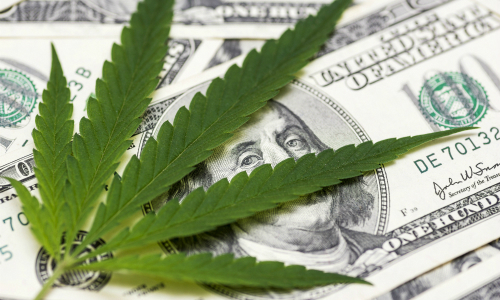US Cannabis Sales Slow After Pandemic Boom
According to a report by Headset, a cannabis data analytics company, sales at dispensaries and pharmacies in states with established legal cannabis markets have declined compared to last year. For example, in Colorado—one of the most developed cannabis markets in the US—sales in June dropped by 11.4% year-over-year.
Headset data shows that from March 2020 to March 2021, average monthly sales in Colorado grew by 25.8% over the year. However, as COVID restrictions began to ease last summer, both the frequency of cannabis purchases and the amount people spent started to decrease. In July of this year, for instance, the average spend per store visit in Colorado was $55.21, nearly $4 less than in July 2021, when customers spent an average of $59.73 per visit.
“Retailers are offering discounts during this period of high inflation because they’re trying to move products off the shelves,” said Chris Walsh, CEO of Marijuana Business Daily. He added that businesses are also facing tough competition from a “thriving” illegal market that isn’t subject to taxes.
Troy Datcher, CEO of The Parent Company, a cannabis producer in California, shares this view: “We operate in an incredibly complex and competitive environment, where our biggest competitor is the illegal market.”
Despite these challenges, overall retail sales in the industry continue to grow, and forecasts predict further growth as new major markets emerge, including New York, Maryland, and Missouri.
According to analysis by Marijuana Business Daily, combined medical and recreational cannabis sales in the US could reach $33 billion by the end of the year, up from $27 billion last year. By 2026, sales are projected to hit $52.6 billion.
However, for now, investment money is drying up as the market becomes more crowded. Data from Viridian Capital Advisors, a New York-based cannabis consulting firm, shows that total capital raised in the US from the start of the year to now has dropped by 62.6% compared to last year, and equity financing has plummeted by 96.3%—from $2.1 billion in 2021 to $78 million in 2022.
Experts say part of the problem is that investors are tired of waiting for federal regulation. The lack of federal oversight means that cannabis businesses in states where recreational sales are legal still can’t access traditional banking services or institutional capital. A Congressional bill called the SAFE Banking Act would remove these restrictions, but it has failed to pass the Senate, despite clearing the House several times.
Matt Hawkins, founder of Entourage Effect Capital, a cannabis investment firm, said he and other investors have become more selective about the types of businesses they fund, favoring those that already have a significant market share. According to him, this could hurt smaller players hoping to gain a foothold.
“The industry is still undergoing internal consolidation, and it’s difficult for new licensees to find capital and improve efficiency,” said Robert Beasley, CEO of Fluent, which operates medical dispensaries in Florida, Pennsylvania, and Texas.
Despite the economic hurdles, Beasley expressed hope that “a few small regulatory relaxations” could help get the industry back on track.



